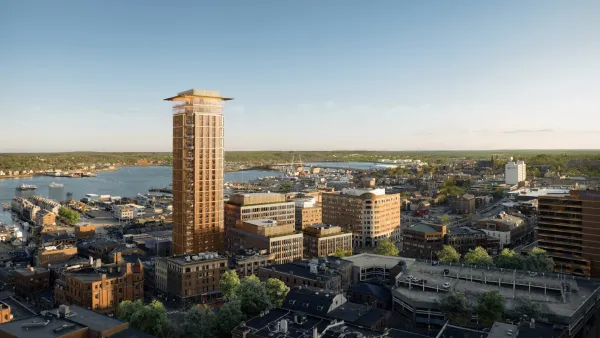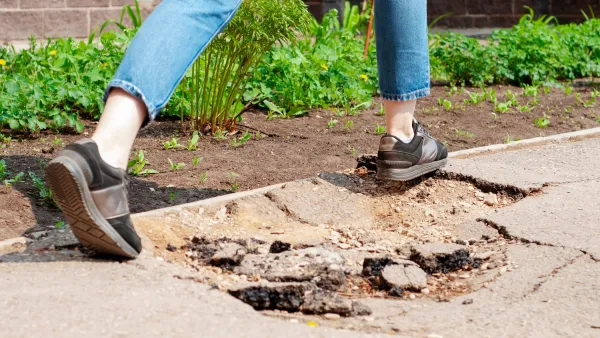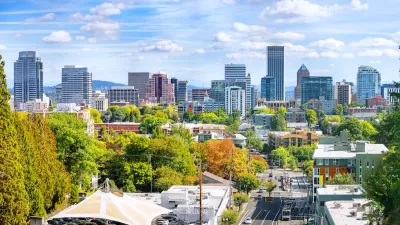DC writer Alec Dubro questions the pursuit of the green car, concluding we should cease its financial support. Though people may prefer the car culture, it would make more sense to pursue a ‘post car future’, citing Portland’s compact neighborhoods.
"The real problem is, though, cars don't move people, cars move cars."
"Even if we were able to produce a 100 mpg, zero pollution vehicles, we'd still need to maintain the infrastructure of roads, bridges, and energy distribution. That means steel, concrete, asphalt and plastics. Just concrete production alone generates as much as 10 percent of all greenhouse gas.
And there's another intractable problem: the very thing that makes tires so useful – comfort, stability, adhesion – also produces immense rolling friction. One reason trains are able to transport people using far less energy per passenger mile is that there are fewer wheels per person and steel wheels have much less rolling friction.
But there's an even more profound problem with building more efficient cars. In 1865, English economist William Stanley Jevons discovered an efficiency paradox: the more efficient you make machines, the more energy they use. Why? Because the more efficient they are, the better they are, the cheaper they are and more people buy them, and the more they'll use them."
Thanks to John Hartz
FULL STORY: The Myth of the Efficient Car

Planetizen Federal Action Tracker
A weekly monitor of how Trump’s orders and actions are impacting planners and planning in America.

Vehicle-related Deaths Drop 29% in Richmond, VA
The seventh year of the city's Vision Zero strategy also cut the number of people killed in alcohol-related crashes by half.

As Trump Phases Out FEMA, Is It Time to Flee the Floodplains?
With less federal funding available for disaster relief efforts, the need to relocate at-risk communities is more urgent than ever.

Plastic Bag Bans Actually Worked
U.S. coastal areas with plastic bag bans or fees saw significant reductions in plastic bag pollution — but plastic waste as a whole is growing.

Improving Indoor Air Quality, One Block at a Time
A movement to switch to electric appliances at the neighborhood scale is taking off in California.

Opinion: How to Rebuild the ‘Starter Home’ Market
Large minimum lot sizes and restrictions on multi-unit housing put an artificial floor under home costs. Is it time to eliminate them?
Urban Design for Planners 1: Software Tools
This six-course series explores essential urban design concepts using open source software and equips planners with the tools they need to participate fully in the urban design process.
Planning for Universal Design
Learn the tools for implementing Universal Design in planning regulations.
Borough of Carlisle
Smith Gee Studio
City of Camden Redevelopment Agency
City of Astoria
Transportation Research & Education Center (TREC) at Portland State University
City of Camden Redevelopment Agency
Municipality of Princeton (NJ)





























